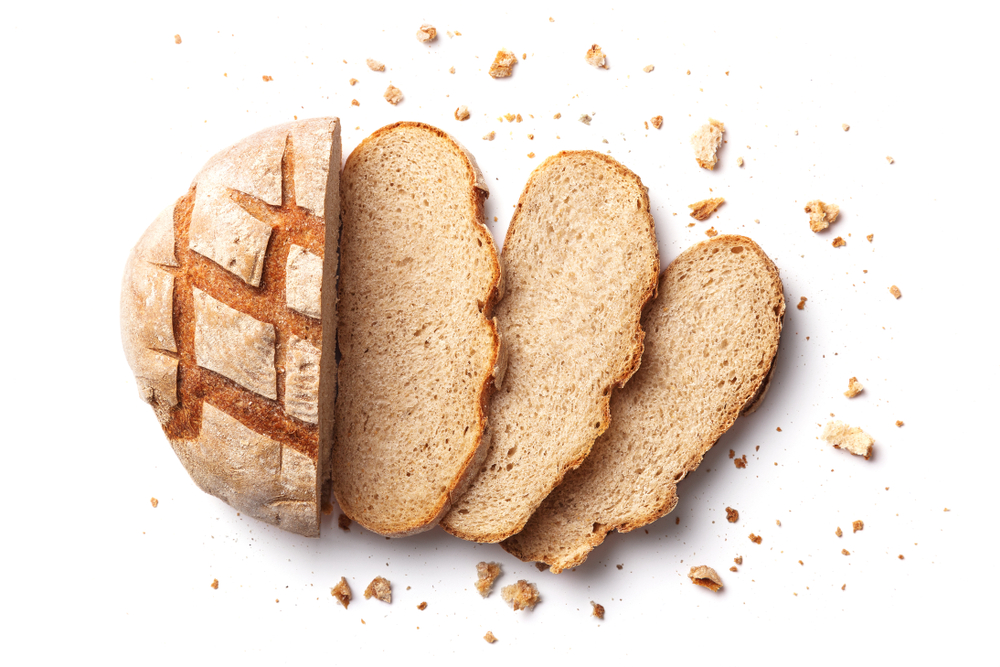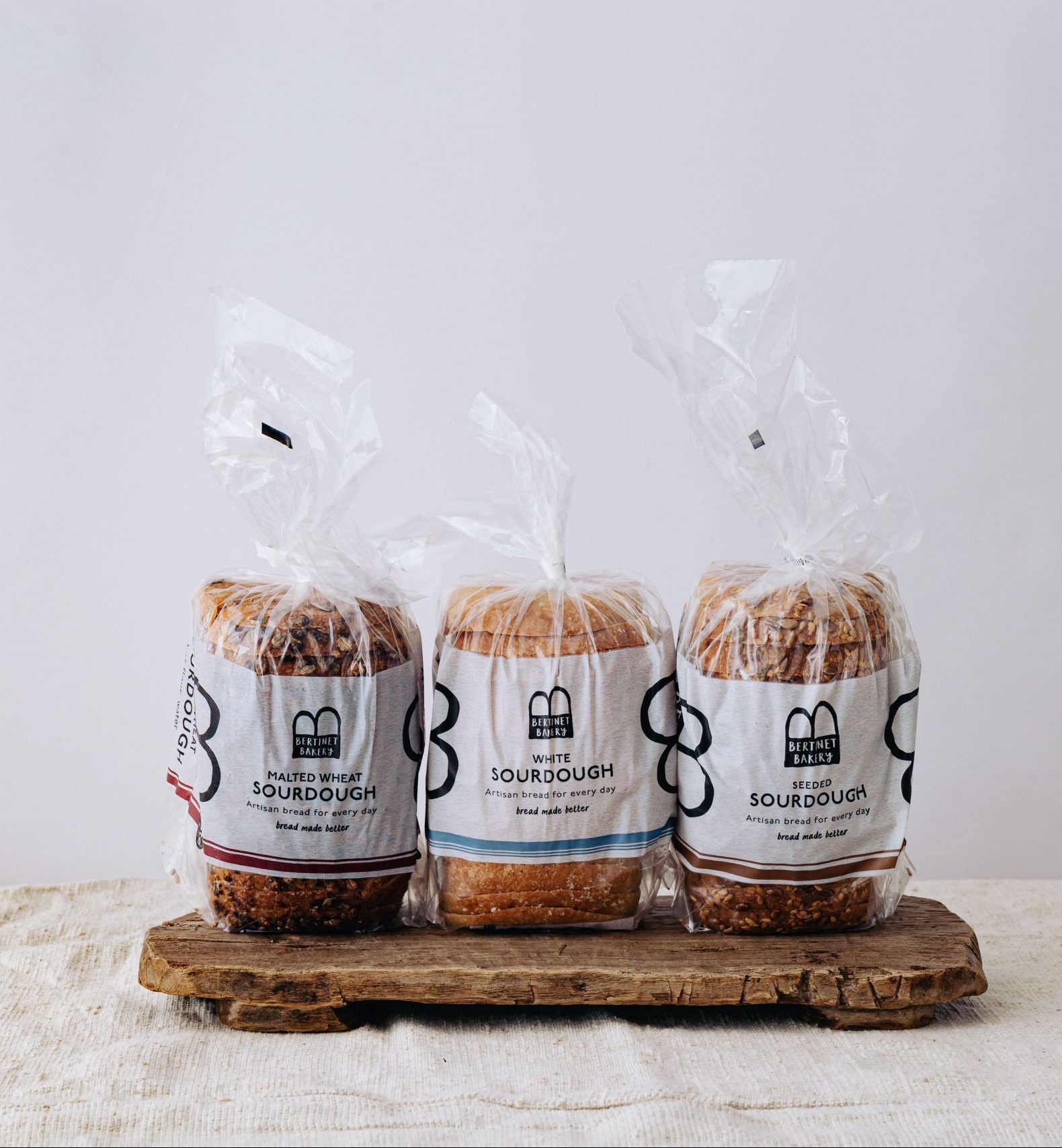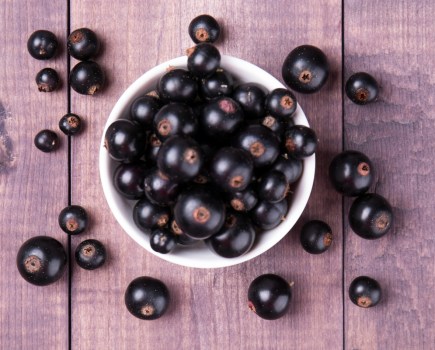This week (17-25 February) marks Real Bread Week which celebrates the health benefits of all-natural additive-free loaves. Bread is often seen as being bad for you – from claims of ‘bread bloat’ to ‘bad carbs’ – but according to Jenna Hope, resident nutritionist at Bertinet Bakery, a good honest crust can be a nutritious, convenient and affordable staple in everyone’s daily diet…
Jenna separates fact from fiction on the bread debate by debunking 10 commonly believed myths about bread, to help us understand that real bread (i.e. an all-natural loaf free from additives), isn’t necessarily bad for you when eaten as part of a well-balanced diet…
Myth 1: Bread causes weight gain
‘Individual foods alone don’t cause weight gain,’ says Jenna. ‘Generally, weight gain occurs when we consume more energy than we require for our daily physiological functioning and physical activity levels.
‘It’s about what you eat with bread rather than the bread itself. Choosing healthy toppings and sandwich fillings is important. High sugar, high saturated fat spreads and fillings can contribute to over consumption of energy content, so opt for those rich in protein and include a source of fruit or vegetables instead.’
Myth 2: Bread leaves you feeling bloated
‘Additives and overprocessing of the flours in certain mass-produced loaves can make some of us feel bloated. Choosing all-natural bread options can alleviate this and you can find them in the supermarket now.
‘Try a sourdough bread that contains just flour, water and sea salt. The fermentation process actually breaks down some of the gluten proteins which makes the bread easier to digest. The live cultures in the sourdough also help to support the growth of the commensal (good) bacteria in the gut, helping to reduce gastrointestinal discomfort.’

Myth 3: Gluten-free bread is healthier
‘This is a common misconception,’ says Jenna. ‘Evidence suggests that those who remove gluten from their diet without a medical need (coeliac disease or an allergy) are at a greater risk of reduced gut diversity – having a rich variation of good bacteria in the gut is key to keeping it healthy.
‘The bacteria produced through the fermentation process feeds the good bacteria in your gut, helping to promote more diverse environment. Furthermore, many gluten-free alternatives contain more artificial additives and sugars compared to their gluten-containing counterparts.’
Myth 4: Bread is bad for blood sugar
‘Bread alone is not the culprit here – it’s actually the higher sugar spreads people commonly consume with bread. These cause blood sugar levels to spike. Fibre-rich bread can help to stablise blood sugar levels as fibre slows down the release of sugars into the blood stream.’
Myth 5: Bread is addictive
‘There is no good quality, scientifically sound evidence to support this theory. In fact, good quality bread is a nutrient-dense, convenient and delicious addition to the diet.’
Myth 6: Bread contains no nutritional value
‘Bread can actually be a rich source of nutrients, including protein and fibre. During the fermentation process of sourdough bread, phytic acid (which often binds to nutrients such as zinc) is reduced in the wheat. As a result, we are able to absorb more zinc from sourdough bread than we may do other varieties.’

Myth 7: Eating bread causes gluten sensitivity
‘1% of the UK population have coeliac disease and a further 10-15% are reported to have non-coeliac gluten sensitivity. Those with non-coeliac gluten sensitivity may experience gastrointestinal symptoms from the consumption of gluten.
‘However, the fermentation process of sourdough bread breaks down the gluten making it easier to digest. There is no evidence to suggest that consuming gluten can induce gluten sensitivity in otherwise healthy individuals.’
Myth 8: Cutting out bread causes weight loss
‘Bread is a source of carbohydrates which require water to be stored. When we cut out carbs we merely lose water weight. Low levels of water in the body can actually contribute to fluid imbalance and dehydration.’
Myth 9: Carbohydrates in bread are bad for you
‘Carbohydrates are essential to a healthy diet – they play an important role in supporting energy production and hormone function. Carb-rich foods also contain fibre which is pivotal to supporting a healthy gut.
‘Eating good quality, all-natural bread is a great way to increase the fibre in your diet. Sourdough also contains live cultures which help to promote the growth of beneficial bacteria in the gut.’
Myth 10: Bread makes you feel sluggish
‘The carbohydrates from fibre-rich bread like sourdough are released slowly into the blood stream to provide sustained energy. Switching up to a good quality all-natural bread, like sourdough for your sandwiches or toast, with a healthy filling or topping is a great way to further boost your energy levels.’
Bertinet Bakery creates a range of all-natural sourdough loaves using traditional methods, simple ingredients and nothing artificial. Bertinet Bakery is supporting The Real Bread Campaign as part of an aligned mission to give everyone access to better quality all-natural bread. Visit bertinetbakery.com for more information.









